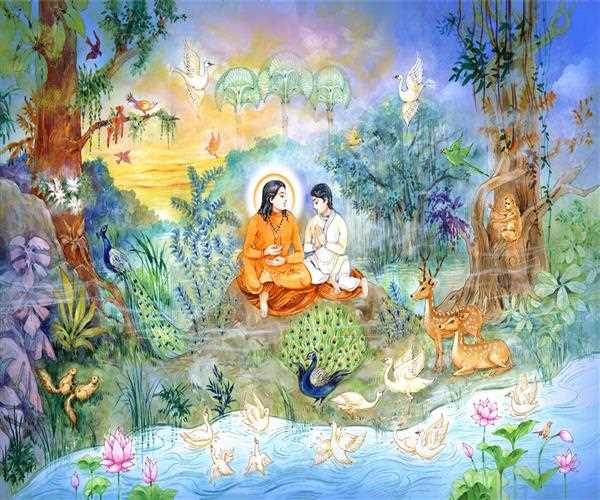In Sanatan Dharma, commonly known as Hinduism, the role of gurus (spiritual teachers) and the guru-disciple relationship holds great significance. The term "guru" is derived from Sanskrit, where "gu" means darkness and "ru" means remover, suggesting that a guru is one who dispels ignorance and leads the disciple towards spiritual enlightenment. The guru-disciple relationship is deeply rooted in the spiritual and philosophical traditions of Sanatan Dharma and plays a vital role in the transmission of knowledge and spiritual guidance.

In Sanatan Dharma, a guru is considered a spiritual guide, mentor, and teacher who possesses deep wisdom, spiritual insight, and practical experience in the path of self-realization. The guru is seen as a conduit for divine grace and enlightenment, providing guidance, support, and instructions to the disciple on their spiritual journey. The role of the guru is not merely to impart knowledge but to facilitate the direct experience and realization of spiritual truths.
The guru-disciple relationship is characterized by utmost respect, devotion, and surrender on the part of the disciple. The disciple recognizes the guru as a spiritual authority and places their trust and faith in the guru's guidance. The disciple seeks the guru's wisdom, teachings, and practices to advance on the path of self-realization and spiritual growth. The guru, in turn, accepts the responsibility of nurturing the disciple, imparting spiritual knowledge, and providing guidance tailored to the disciple's unique needs and spiritual evolution.
One of the key aspects of the guru-disciple relationship is the transmission of knowledge through the guru's grace or initiation (diksha). During initiation, the guru transfers spiritual energy, blessings, and teachings to the disciple, facilitating their spiritual growth and transformation. This initiation ceremony signifies the formal acceptance of the disciple into the guru's lineage and the commitment to a spiritual path.
The guru's role extends beyond intellectual instruction and encompasses various aspects of the disciple's life. The guru provides guidance in ethical conduct, personal discipline, meditation practices, and the study of scriptures and spiritual texts. The guru also serves as a spiritual friend, offering solace, support, and encouragement during challenging times.
Furthermore, the guru-disciple relationship is not limited to the duration of physical proximity. Even after the physical departure of the guru, the disciple continues to maintain a deep connection and reverence for the guru's teachings and presence. The teachings and practices learned from the guru are carried forward and practised by the disciple, ensuring the continuity of the guru's lineage and the preservation of spiritual wisdom.
It is important to note that the guru-disciple relationship is a highly personal and individual journey. Different disciples may have different gurus, and the relationship is based on mutual understanding, resonance, and the spiritual needs of the disciple. While the guru holds a significant role, the ultimate goal of the disciple is to realize the divinity within themselves and attain liberation (moksha).